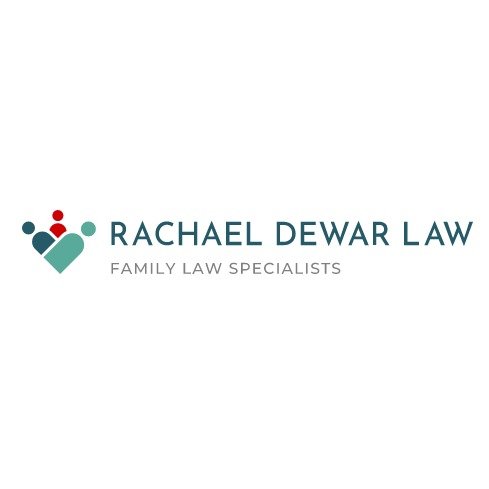Best Adoption Lawyers in New Zealand
Share your needs with us, get contacted by law firms.
Free. Takes 2 min.
Free Guide to Hiring a Family Lawyer
Or refine your search by selecting a city:
List of the best lawyers in New Zealand
About Adoption Law in New Zealand
Adoption in New Zealand is a legal process through which the rights and responsibilities of biological parents are permanently transferred to adoptive parents. The process is regulated primarily by the Adoption Act 1955 and the Adult Adoption Information Act 1985. Adoption can be a life-changing process that aims to provide permanency and stability for children. It is overseen by the Family Court to ensure that the best interests of the child are the primary consideration in any adoption decision.
Why You May Need a Lawyer
Seeking legal advice in the field of adoption is often crucial due to the complex nature of the process. You might need a lawyer in cases such as:
- Understanding Legal Requirements: You need to understand eligibility and requirements for adoption, such as age and residency criteria.
- Contested Adoptions: If birth parents contest the adoption or there are complications with consent.
- International Adoptions: Navigating international laws and regulations if adopting a child from overseas.
- Step-parent Adoptions: Legal guidance is often necessary when a step-parent wishes to adopt a child.
- Court Hearings: Ensuring timely submission of required documentation and representation in the Family Court.
Local Laws Overview
Key aspects of adoption laws in New Zealand include:
- The Adoption Act 1955: The principal legislation governing the adoption process, detailing eligibility and procedural requirements.
- The best interests of the child: All decisions are made with the child's welfare as the paramount consideration.
- Parental Consent: Consent from both biological parents is generally required unless the court waives consent under specific circumstances.
- Home Study Reports: A comprehensive assessment by Oranga Tamariki or a licensed adoption agency is mandated to evaluate the suitability of adoptive applicants.
- Closed Adoption System: Traditionally, adoptions in New Zealand have been closed, but openness is becoming more common, where there is more contact between birth parents and adoptive families.
Frequently Asked Questions
What is the age requirement for adopting a child in New Zealand?
Prospective adoptive parents must be at least 25 years old unless they are a relative of the child, wherein they can be 20 or older.
Do I need the birth parents' consent for adoption?
Yes, consent from both birth parents is typically necessary unless the court grants an exception due to specific reasons such as the inability to contact a parent.
Can single individuals adopt a child in New Zealand?
Yes, single individuals, including sole men and women, are eligible to adopt as long as they meet other criteria.
How long does the adoption process take?
The duration varies but generally spans several months to over a year, largely depending on individual circumstances and the efficiency of documentation processing.
What support is available for adoptive parents?
Various support services are available, including counseling, post-adoption support groups, and government resources through Oranga Tamariki.
Can a child know their birth parents?
In open adoptions, ongoing contact with birth parents can be arranged, though this varies with each individual scenario and agreements made before the court.
What are the steps involved in the adoption process?
Typically, the process involves application, assessment by a social worker, court hearings, and post-adoption arrangements.
Is it possible to adopt a child internationally from New Zealand?
Yes, international adoptions are possible but involve additional steps regarding compliance with both New Zealand and the child’s home country's laws.
What are the fees associated with adopting a child?
Fees vary depending on the type of adoption and whether legal representation is used, but governmental assessments and application processes typically have associated costs.
Can adopted children find out about their biological parents?
Adopted individuals over the age of 20 can request access to their original birth certificates and adoption records to learn about their biological parents.
Additional Resources
For more information and assistance, consider reaching out to:
- Oranga Tamariki - Ministry for Children: The governmental body responsible for child adoption services.
- Adoption Support Agencies: Private organizations that provide counseling and support throughout the adoption process.
- Community Law Centres: Offer free legal information and advice to those involved in the adoption process.
- New Zealand Law Society: There are guidelines and referrals for finding specialized adoption lawyers.
Next Steps
If you need legal assistance for an adoption matter, consider the following steps:
- Initial Consultation: Schedule a meeting with a lawyer specializing in family law to discuss your case.
- Gather Documentation: Compile all pertinent documents, such as birth certificates, any prior legal filings, and identification.
- Assess Financial Considerations: Understand the potential costs, including legal fees and other related expenses.
- Engage with Legal Representation: Secure a lawyer to guide and represent you through the adoption process.
- Stay Informed: Regularly communicate with your lawyer and related agencies to stay updated on your case status.
Lawzana helps you find the best lawyers and law firms in New Zealand through a curated and pre-screened list of qualified legal professionals. Our platform offers rankings and detailed profiles of attorneys and law firms, allowing you to compare based on practice areas, including Adoption, experience, and client feedback.
Each profile includes a description of the firm's areas of practice, client reviews, team members and partners, year of establishment, spoken languages, office locations, contact information, social media presence, and any published articles or resources. Most firms on our platform speak English and are experienced in both local and international legal matters.
Get a quote from top-rated law firms in New Zealand — quickly, securely, and without unnecessary hassle.
Disclaimer:
The information provided on this page is for general informational purposes only and does not constitute legal advice. While we strive to ensure the accuracy and relevance of the content, legal information may change over time, and interpretations of the law can vary. You should always consult with a qualified legal professional for advice specific to your situation.
We disclaim all liability for actions taken or not taken based on the content of this page. If you believe any information is incorrect or outdated, please contact us, and we will review and update it where appropriate.
Browse adoption law firms by city in New Zealand
Refine your search by selecting a city.

















